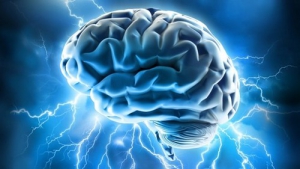Can your brain function without carbs?
Busting the myth: “Low carb is dangerous, because your brain needs sugar”
Alex Petrushevski

This is one of the most common myths facing anyone considering adopting a low carbohydrate diet. Many people that adopt a low carbohydrate diet comment on increased mental clarity or improvement of “brain fog” and certainly don’t miss the effects processed sugars have on their brain.
Your brain always needs an energy supply
The brain is one of the most crucial and energy intensive organs in the body, and as such it needs a steady reliable supply of energy. Unlike muscles and other organs, the brain can’t get energy directly from fats.
On a standard western diet, the brain almost exclusively gets its energy from carbohydrate, in the form of glucose. If a low carbohydrate or ketogenic diet is adopted, the body generally depletes its stores of glucose (glycogen) and instead turns to ketones as a source of energy, which are broken down from fatty acids.
Ketones are able to supply up to 70% of your brain’s energy needs.1
However, some brain cells still need glucose to function and survive. So, if you’re not eating carbohydrates, what is the answer for that part of your brain?
Making your own glucose
Gluconeogenesis (literally, making new glucose) is a process that occurs predominantly in the liver if blood sugar levels fall. In the absence of high insulin levels the liver will produce glucose from the breakdown of amino acids and fats. Your liver is thereby able to tightly regulate the amount of glucose in your bloodstream, and therefore in your brain.2
Even when your carb intake is very low, the parts of your brain that need glucose can get a steady supply from the liver, and the rest will happily use the ketones your body makes.
In fact, if anything, low carb and ketogenic diets can be beneficial for the brain
The ketogenic diet has been used for almost a century for the treatment of epilepsy in children, with good results. Newer emerging research has also shown promise in using ketogenic diets in the following neurological diseases:
- Seizures in adults
The ketogenic diet has long been used in children with epilepsy, but attention is now turning to using it as an adjunct in difficult (refractory) cases in adults as well.3
- Alzheimer’s disease – the most common form of dementia
There is growing evidence that insulin resistance in the brain is a major driver of the development of Alzheimer’s disease, with some calls to label the disease “type 3 diabetes”.4,5 Although preliminary, there is interest in using a ketogenic diet or ketone supplements to help improve symptoms in patients with Alzheimer’s.6,7
- Parkinson’s disease
Small pilot trials have shown promise in improving the motor symptoms associated with Parkinson’s disease.8
- Migraines
Ample anecdotal evidence exists for chronic migraine sufferers improving their migraine control on low carbohydrate diets, and some studies show promise in terms of reduction in symptoms and less need for medication.9,10
The bottom line is yes, your brain needs some glucose to survive, but your liver is perfectly capable of making the glucose you need – it doesn’t have to come from your diet. A combination of glucose (derived from gluconeogenesis) and ketones may be the optimal fuel for long term brain health.
In fact, we know that our hunter-gatherer ancestors would often go long periods without any carbohydrate in their diets (or even days without any food at all). Their ability to adapt to altered dietary conditions was crucial for survival as a species.
References:
- White H, Venkatesh B. Clinical review: ketones and brain injury. Critical care (London, England) 2011;15(2):219.
- Berg JM, Tymoczko JL, Stryer L. 5th edition. New York: WH Freeman; 2002
- Ye F, Li XJ, Jiang WL, Sun HB, Liu J. Efficacy of and Patient Compliance with a Ketogenic Diet in Adults with Intractable Epilepsy: A Meta-Analysis. J Clin Neurol. 2015 Jan;11(1):26-31.
- de la Monte SM. Type 3 diabetes is sporadic Alzheimer׳s disease: mini-review. European neuropsychopharmacology : the journal of the European College of Neuropsychopharmacology 2014;24(12):1954-60.
- Ferreira ST, Clarke JR, Bomfim TR, De Felice FG. Inflammation, defective insulin signaling, and neuronal dysfunction in Alzheimer’s disease. Alzheimer’s & dementia : the journal of the Alzheimer’s Association 2014;10(1 Suppl):S76-83.
- Cunnane SC, Courchesne-Loyer A, St-Pierre V, Vandenberghe C, Pierotti T, Fortier M, Croteau E, Castellano CA. Can ketones compensate for deteriorating brain glucose uptake during aging? Implications for the risk and treatment of Alzheimer’s disease. Annals of the New York Academy of Sciences 2016;1367(1):12-20.
- Krikorian R, Shidler MD, Dangelo K, Couch SC, Benoit SC, Clegg DJ. Dietary ketosis enhances memory in mild cognitive impairment. Neurobiology of aging 2012;33(2):425.e19-27.
- Phillips MCL, Murtagh DKJ, Gilbertson LJ, Asztely FJS, Lynch CDP. Low-fat versus ketogenic diet in Parkinson’s disease: A pilot randomized controlled trial. Movement disorders : official journal of the Movement Disorder Society 2018;33(8):1306-14.
- Di Lorenzo, C et al. “Short term improvement of migraine headaches during ketogenic diet: a prospective observational study in a dietician clinical setting.” The Journal of Headache and Pain 14,Suppl 1 (2013): P219.
- Barbanti P, Fofi L, Aurilia C, Egeo G, Caprio M. Ketogenic diet in migraine: rationale, findings and perspectives. Neurological sciences : official journal of the Italian Neurological Society and of the Italian Society of Clinical Neurophysiology 2017;38(Suppl 1):111-5.
This article provides general information from the current scientific evidence base and clinical judgement of the author. It is designed for educational purposes only and should not be substituted for medical advice. The author recommends you seek personally tailored support from a qualified healthcare practitioner before undertaking any major lifestyle change.



